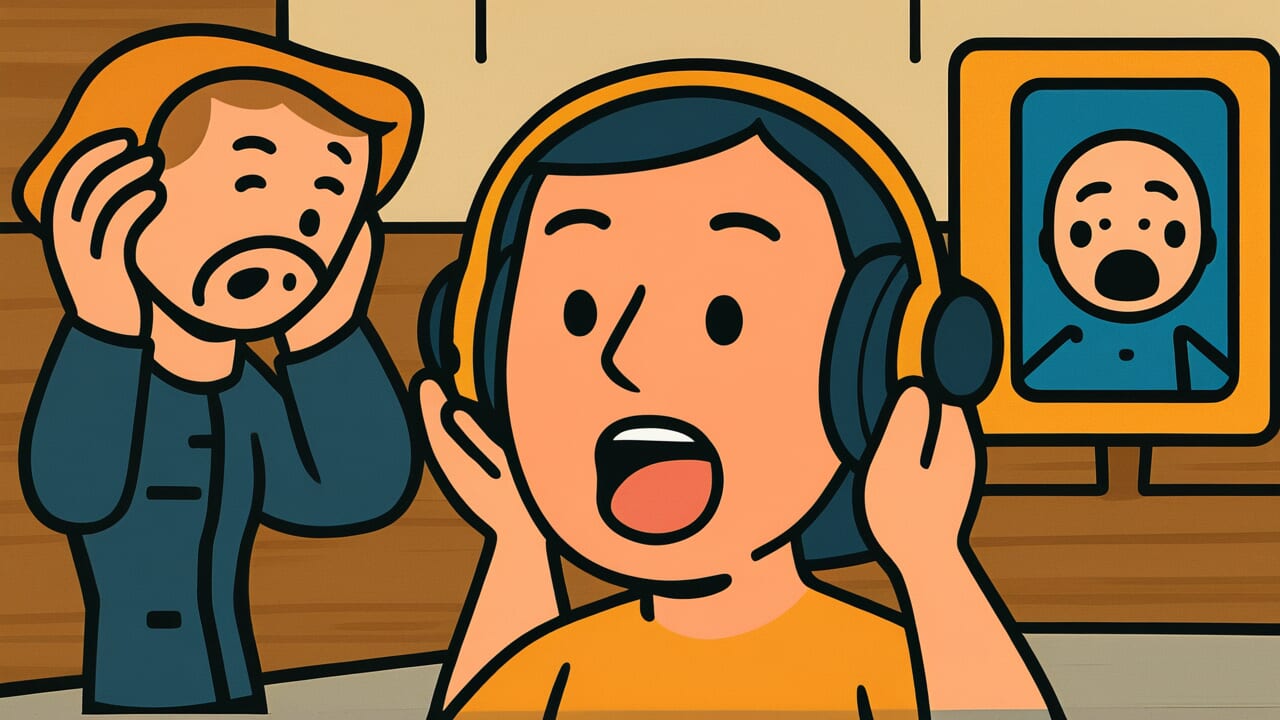How to Read “What isn’t said can’t be heard”
Iwanu koto wa kikoenu
Meaning of “What isn’t said can’t be heard”
“What isn’t said can’t be heard” means that if you don’t put something into words, the other person will never understand it.
No matter how strongly you feel something in your heart, the other person cannot know it unless you speak up.
This proverb is used when you want someone to understand something, when you need their cooperation, or when you want them to know your feelings.
It teaches the importance of expressing yourself clearly rather than expecting others to read your mind.
This applies to many situations today. You might need to make a request at work, express gratitude to family, or share honest feelings with friends.
Even with social media everywhere, what you truly want to communicate won’t reach someone’s heart unless you say it directly.
Rather than staying silent and hoping others will notice, finding the courage to speak is the first step to building good relationships.
Origin and Etymology
There are no clear written records about the origin of this proverb. However, we can make interesting observations from its structure.
The expression contrasts two negative forms: “isn’t said” and “can’t be heard.” This structure combines the rhythm and logic that Japanese language naturally possesses.
This pattern clearly shows cause and effect. It likely emerged naturally in everyday conversation over time.
The word “kikoenu” (can’t be heard) is particularly noteworthy. Modern Japanese distinguishes between “kiku” (to listen, a deliberate act) and “kikoeru” (to be heard, a natural phenomenon).
By using “kikoenu,” the proverb emphasizes a physical fact: if you don’t say something, it cannot possibly reach the other person’s ears.
Traditional Japanese communication culture has valued reading between the lines and unspoken understanding. These have been considered virtues.
At the same time, people learned through experience that such implicit understanding has its limits.
This proverb was born from that cultural background. It teaches the importance of putting things into words.
It conveys an obvious truth in a memorable way: what you don’t speak cannot be communicated. The wisdom lies in expressing this simple reality through striking contrast.
Usage Examples
- If you have complaints, remember that what isn’t said can’t be heard, so you should talk to your boss
- I thought she would notice, but what isn’t said can’t be heard, right?
Universal Wisdom
The proverb “What isn’t said can’t be heard” points to the most basic yet most overlooked truth about human relationships.
People have a strange tendency to assume others know what’s in their hearts. The closer the relationship, the more we expect others to understand without words.
But in reality, no one can completely read another person’s mind, no matter how close they are.
This proverb has been passed down for generations because it addresses this human nature. We expect others to understand us, then feel disappointed when they don’t.
Through this cycle, our ancestors realized something important. When communication fails, the problem isn’t the other person’s understanding. The problem is that we didn’t speak up.
Speaking up takes courage. We fear rejection or misunderstanding. These fears keep us silent.
But if we don’t speak, nothing can begin. This proverb teaches a strict but kind lesson: the responsibility for communication lies with the sender.
Many relationship problems actually stem from things we didn’t say. This proverb reminds us that silence creates more problems than words ever could.
When AI Hears This
Shannon, the founder of information theory, defined communication systems as a flow: information source → transmitter → channel → receiver → destination.
The crucial point is this: if the information source outputs nothing, the information input to the transmitter is zero bits. All subsequent processes simply don’t operate.
When we view this proverb through information theory, we discover something remarkable. People expect others to understand without speaking, but information theory shows that unspoken thoughts have zero entropy.
In other words, ideas in your head are completely identical to non-existent information from an external observer’s perspective.
Think of it this way: a notification not displayed on your phone screen is indistinguishable from a message never received.
Even more interesting is Shannon’s concept of “channel capacity.” This represents the maximum information that can be transmitted per unit of time.
But if transmission is zero, even the highest-performance channel transmits nothing. No matter how excellent someone’s understanding ability is, if you don’t speak, the probability of information transfer is mathematically zero percent.
This proverb expresses a cold mathematical truth as everyday wisdom: silence is the absence of information.
Lessons for Today
This proverb teaches modern people the importance of taking action rather than waiting.
In today’s society, we often swallow our words because we worry too much about others’ reactions.
We can’t suggest improvements at work. We can’t express gratitude to family. We can’t share honest feelings with friends.
While we stay silent, misunderstandings pile up and relationships become strained.
But think about it. If you don’t speak up, the other person has no way to know your thoughts.
They’re not mind readers. There are limits to what people can guess. Actually, people appreciate it when you speak clearly.
Find the courage to put things into words. Your expression doesn’t need to be perfect.
Even clumsy words have meaning when they’re genuinely yours. Simple phrases like “thank you,” “I need help,” or “this is what I think” can transform relationships.
If you don’t speak, nothing changes. But when you speak, something starts moving.
Your voice has much more power than you think it does.



Comments